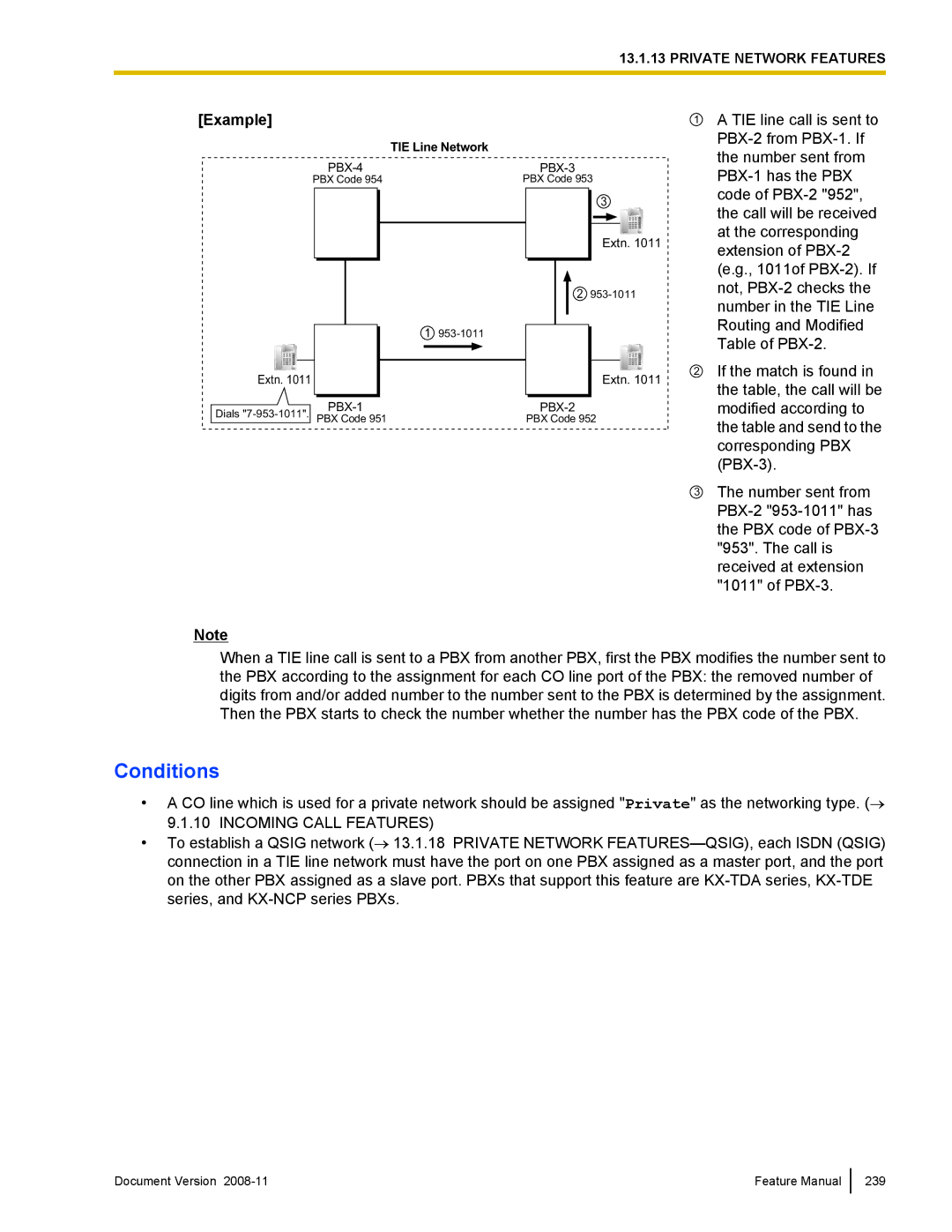
13.1.13 PRIVATE NETWORK FEATURES
[Example]
| TIE Line Network |
PBX Code 954 | PBX Code 953 |
3
Extn. 1011
1 | A TIE line call is sent to |
| |
| |
| the number sent from |
|
|
| code of |
| the call will be received |
| at the corresponding |
| extension of |
| (e.g., 1011of |
| not, |
Extn. 1011
Dials
1
PBX Code 951
2
Extn. 1011
PBX Code 952
| number in the TIE Line |
| Routing and Modified |
| Table of |
2 | If the match is found in |
| |
| the table, the call will be |
| modified according to |
| the table and send to the |
| corresponding PBX |
| |
3 | The number sent from |
| |
| |
| the PBX code of |
| "953". The call is |
| received at extension |
| "1011" of |
Note
When a TIE line call is sent to a PBX from another PBX, first the PBX modifies the number sent to the PBX according to the assignment for each CO line port of the PBX: the removed number of digits from and/or added number to the number sent to the PBX is determined by the assignment. Then the PBX starts to check the number whether the number has the PBX code of the PBX.
Conditions
•A CO line which is used for a private network should be assigned "Private" as the networking type. (→ 9.1.10 INCOMING CALL FEATURES)
•To establish a QSIG network (→ 13.1.18 PRIVATE NETWORK
Document Version | Feature Manual |
239
